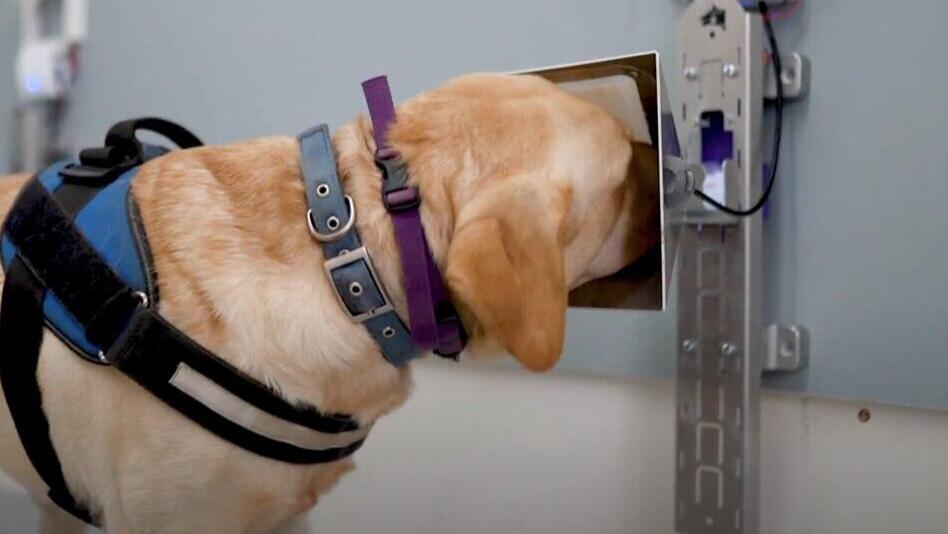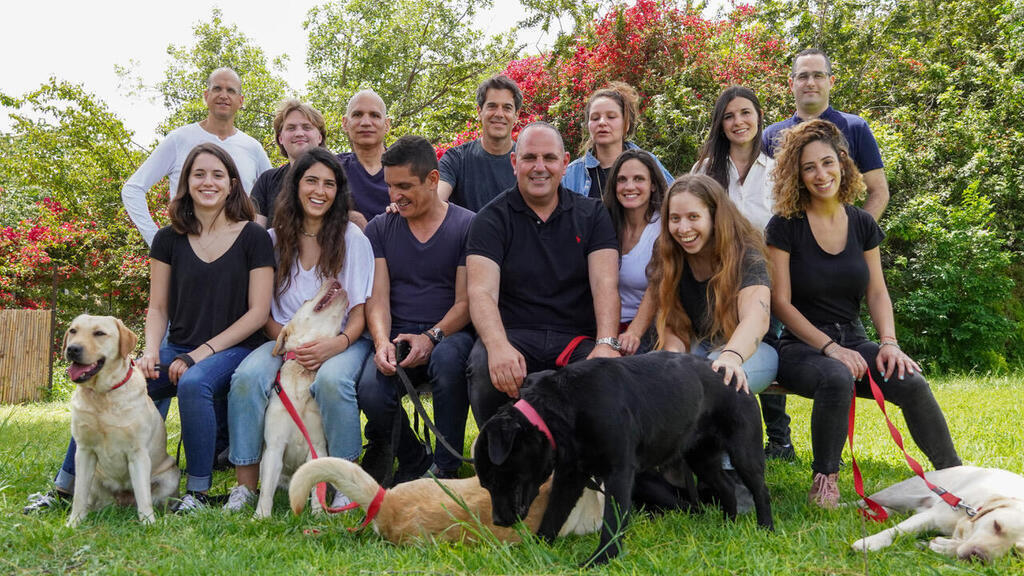The Israeli biotech startup has revealed it has succeeded in developing technology that detects various types of cancer using a simple breath test.
SpotitEarly recently revealed the mid-term results of their clinical study, which was launched about a year and a half ago. The results indicate a 92.8% success rate in identifying the four most common types of cancer - breast, lung, colorectal, and prostate. The test shows high sensitivity even for early stages, before the appearance of symptoms, which is critical for effective treatment of the disease and saving the patient's life. The data also indicate a low false identification percentage, on the order of 7%.
The SpotitEarly test is based on artificial intelligence technology that decodes the physical and behavioral signals of biomedical sniffer dogs, which are part of the company's laboratory team. The system is designed to support screening tests for a variety of medical diagnoses. The company currently focuses on the early detection of cancer.
The survey test is very easy and quick to perform. It consists of wearing a designated face mask, then simply and comfortably blowing into it for five minutes. The test can be performed from home, at a survey institute, or at a clinic. Upon completion of the test, the mask is placed in hermetically sealed packaging and sent back to the company's laboratories. There, it is tested and, within a few days, the result is reported to doctor and patient.
It is planned for the laboratory to reach a sample rate of one million screening tests per year. The cost of the product is about 25% of any other competing screening product. SpotitEarly works in close cooperation with the Israel Cancer Association and intends to donate part of its income to the association when the test is released for commercial use in Israel.
The science underlying the test is related to the "cancer odor signature." It is now known that, at an early stage in the development of cancerous tumors, molecules carrying volatile organic compounds (VOCs) are secreted, first into the blood system, and then into the respiratory system. Each type of cancer has a unique odor signature created from the same VOCs.
Multiple studies have proven that biomedical sniffer dogs can be trained to detect those scent signatures in fractions of a second. SpotitEarly combines the naturally developed olfactory abilities of dogs with a unique technology that includes dynamic sensors, AI-based models, and algorithms designed for optimal accuracy of test results, maximizing predictability and increasing productivity in the laboratory.
The system tracks and monitors hundreds of channels of information produced in real time by cancer sniffing dogs as they go over the samples in the laboratory and combines them with medical data. The result is an accurate, non-invasive, and fast screening test for several types of cancer, with a higher level of sensitivity than devices or screening tests which are used in medicine today.
The company, that is based in a kibbutz in the Sharon region in central Israel is currently conducting extensive clinical research under double-blind conditions led by Professor Nadir Arber. The research is carried out in collaboration with two Israeli medical centers, Sourasky (Ichilov) and Hadassah, led by MIDGAM - a national database for biological samples.
The mid-term results of the study were based on samples of 575 participants that include verified cancer patients (breast, lung, colorectal, and prostate) - some at a very early stage of the disease - and a control group verified as negative for cancer. The participants' samples were collected at the hospitals and sent for testing at SpotitEarly's laboratory under fully blinded experiment conditions.
3 View gallery


SpotitEarly combines the naturally developed olfactory abilities of dogs with a unique technology
(Photo: SpotitEarly)
The survey test was able to identify 92.8% of the sick participants (a particularly high sensitivity compared to the survey measures currently available in the world). The percentage of false positives for the mid-term results was 6.98% (i.e. a test specificity of 93.02%). The test showed stability across the four types of cancer represented in the study: breast cancer, 93%; lung cancer, 91%; colorectal cancer, 95%; and prostate cancer, 93%.
The results are particularly encouraging in light of the fact that the level of test sensitivity remained high even in the early stages of the disease, when symptoms usually do not appear. Detection at these early stages is critical for treatment effectiveness and success. The sensitivity of the test in stage I of the tumors was 92.6% for breast cancer, 95% for lung cancer, 91% for prostate cancer, and 83.3% for colorectal cancer.
"The results of the research so far are groundbreaking. The test developed by SpotitEarly can set a revolution in the first line of cancer screening tests, should the company maintain the results by the end of the study," says Dr. Yifat Zivoni, VP Clinical Laboratory at SpotitEarly and the former Clinical Laboratories division manager at ZIV Medical Center in Safed.
"Unlike other screening tests that have recently come into use, the high specificity of the new test does not come at the expense of sensitivity, hence it is applicable for wide distribution of the product. This, combined with ease of use, will lead to a significant increase in the application of early cancer screening tests for large segments of the population. The result will be the saving of human lives and easing the burden of cancer on the healthcare system.”
The company is proceeding with its research to include about 2,000 participants in total. At its conclusion, SpotitEarly will approach the regulatory authorities in order to introduce the tests into widespread use and for follow-up studies to expand the types of cancer included.
"Discovering cancer in the early stage of the disease, sometimes before symptoms appear, is critical for the patient's chances of recovery," says Ariel Ben Dayan, Co-Founder & CEO of the company. "Every year, approximately 150 billion dollars are invested in various tests to detect cancer, but in only 54% of the cases is cancer detected at a stage which is sufficiently early. This is due to various reasons related to the accessibility of early detection tests, their cost, and the fact that each test covers only one type of cancer.
“Beyond that, most of the tests used today to detect cancer are intrusive and unpleasant, so people sometimes prefer to ignore healthcare guidelines and not get tested. We hope that the easy and efficient test which we are developing will significantly increase the population segment that uses cancer screening and will lead to the detection of the disease in its early stages to save lives.”
SpotitEarly was founded by four longtime friends, all of whom are experts in technology, product or algorithms for medical devices with extensive experience in entrepreneurship: Roi Ophir, Ohad Sharon, Udi Bobrovsky, and Ben Dayan (CEO), who is the former commander of the "Oketz" canine unit of the IDF. The company recently finished a seed financing round led by the Hanaco Ventures, and among its investors are the Menomadin Foundation, Jeff Schwartz, Michael Eisenberg, and Avishi Avrahami.



